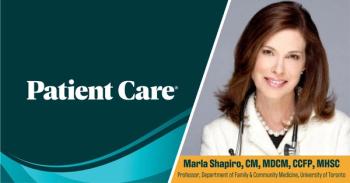
Annals Editor Urges Support for Medical Journals

Like great newspapers, medical journals play a crucial role in our society-and in the midst of the protracted transition from print to web publishing, they need our support. This was the message of the keynote address presented by Harold C. Sox, MD, at the 2009 meeting of the American College of Physicians in Philadelphia.
Harold C. Sox, MD, editor of Annals of Internal Medicine and keynote speaker at ACP Internal Medicine 2009.
Like great newspapers, medical journals play a crucial role in our society-and in the midst of the protracted transition from print to web publishing, they need our support. This was the message of the keynote address presented by Harold C. Sox, MD, at the 2009 meeting of the American College of Physicians in Philadelphia.
Dr Sox, who steps down this July after 8 years as editor of Annals of Internal Medicine, will be taking up a new post as head of the panel of medical experts that will be making recommendations to the US government about what kinds of research should receive funding from the money allotted to the Department of Health and Human Services in the American Recovery and Reinvestment Act of 2009.
As a physician who has devoted years to the study of medical decision making, Dr Sox views this as a tremendous opportunity to fund comparative effectiveness research, or CER, a type of research that is of consummate usefulness to practicing physicians but that until now has been far too rare.
Unlike the placebo-controlled trials required of the pharmaceutical industry by the FDA-trials that also exclude patients with chronic illnesses other than the one being studied-CER is characterized by head-to-head trials, involvement of a broad spectrum of interventions, the inclusion of a wide range of patients (including many with other chronic diseases), and the tailoring of treatments to the needs of individual patients. The overt purpose of the research is to assist patients, physicians, purchasers, and policy makers in making good clinical decisions.
However, the CER that will be funded by stimulus package money will only be a "down payment" on a needed national CER program, Dr Sox noted. CER will almost assuredly face industry opposition, and unless it has strong public confidence will not survive.
This confidence will only be sustained if medical journals hold study authors to the highest standards. Physicians-and the general public-rely on medical journals to judge the reliability of the results of medical research. Dr Sox likened the role of medical journal editors to that of the investigative reporters of our great national newspapers.
Unfortunately, he said, medical journalism is expensive, and times are tough. While the pre-eminent journals are still in relatively good financial health, they are at risk. The transition to online publishing is affecting publications of every kind, and Dr Sox predicted that the day will come when Annals and the other great medical journals will no longer publish print editions. As the newspapers have discovered, deriving a sustaining source of income from an online publication is proving notoriously difficult. Thus, medical journals may well go from being profit centers to needing subsidies.
Dr Sox ended by underscoring our society's dependence on good medical journalism. "We must find a way to sustain it," he said.
Newsletter
Enhance your clinical practice with the Patient Care newsletter, offering the latest evidence-based guidelines, diagnostic insights, and treatment strategies for primary care physicians.































































































































